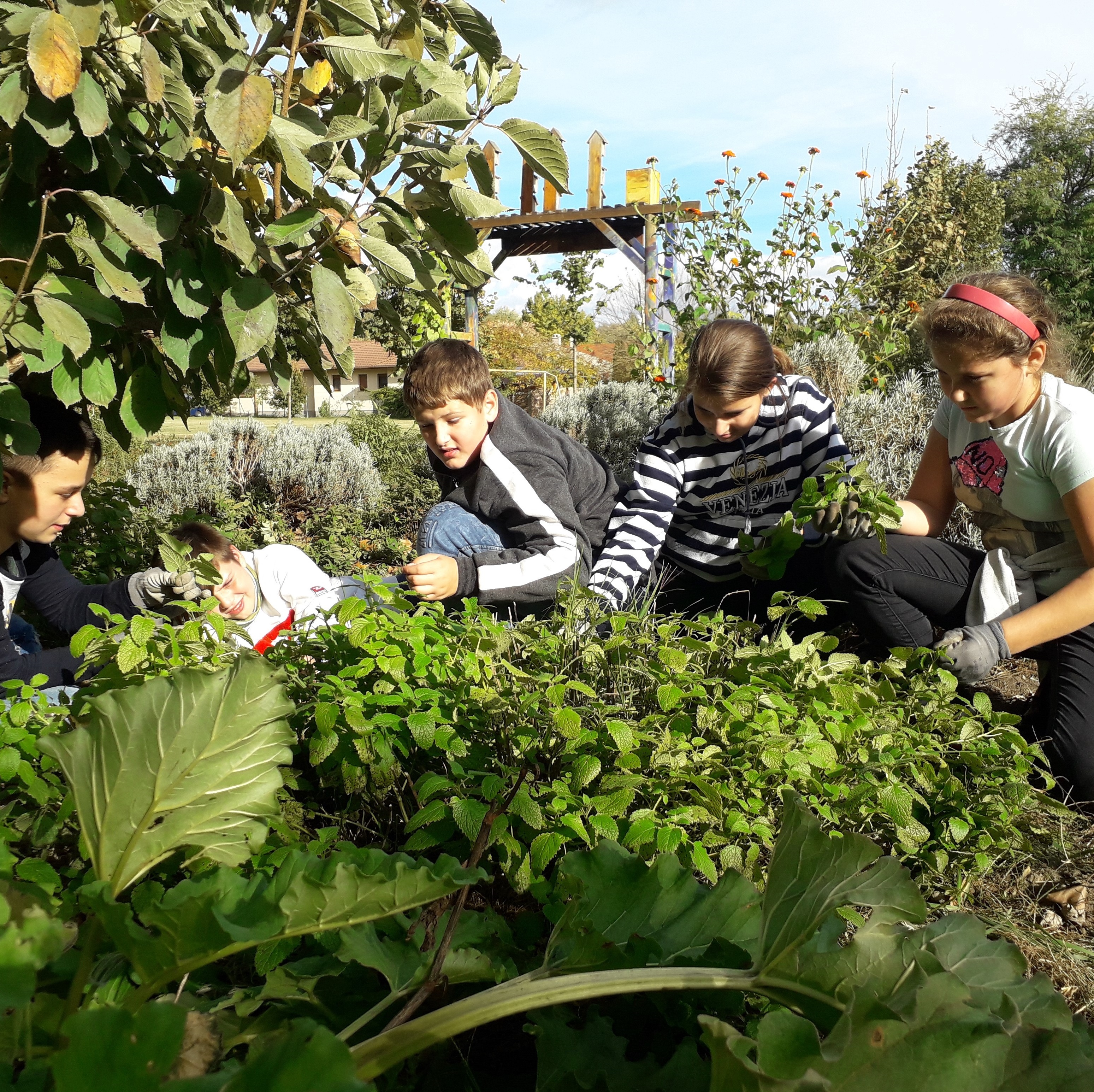András Halbritter
Hungarian Foundation for School Gardens
In this program teachers get help in doing all their daily health promotion tasks of holistic health promotion /HHP, see short summary in the frame/: in improving healthy eating, promoting physical activity, enhancing mental health and improving health literacy + health competencies of children.
After the 19th and 20th century’s flourishing of school gardens a renaissance has come worldwide, including Hungary, school gardens have spread over the world in various countries. The Hungarian national school garden survey in 2018 found 1118 educational sites (8 % of all school and kindergarten locations) that use garden pedagogy. Since than the numbers have grown… but what is the reason behind?
The rising numbers are caused by the necessity of environmental and sustainability education - and it is also obvious that sustainability education supports health development. Like in school gardens, where healthy nutrition, physical activity, working together with other students, the love of earth, mental health and development of sensory organs are all beneficial health effects. Actors in the national school garden renaissance have been the environmental education movement of the 90’s, and the prescription of holistic health promotion (HHP) for all educational institutions by law since 2012. The coordinating activity of the Hungarian Foundation for School Gardens started in 2015: it organized the Hungarian School Garden Network of the Hungarian school and kindergarten gardens in the Carpathian Basin, with free membership and the main aim of helping each other, representation and knowledge sharing. As local initiative the reintegration of school gardening in the teacher training in Győr, the ‘Earth Rotators’ pilot programme of the Hungarian Chamber of Agriculture and the Caritas Hungary (Diocese of Vác). The Ministry of Agriculture, after the Urban Agriculture Strategy (covering school gardens), launched the Hungarian School Garden Development Programme in 2019 (http://www.iskolakertekert.hu/images/1dok/schoolgardendevelopment2019_net.pdf), which integrated the former programs’ experiences, research results, measures of previous initiatives. In the year of 2019 67 schools, while in 2020 50 schools and 50 kindergartens could start or develop their school gardens by the coordination of the Hungarian Foundation for School Gardens, which elaborated not only the measures, but two 30-hours accredited school garden teacher vocational training for the participants, and also an on-site pedagogical mentoring in which the school gardening is integrated also in the institution’s health education programs. The Hungarian Alliance for Organic Farming provides horticultural mentoring. It is not enough to provide tools and land as ‘hardware’, but ‘software’: the professional knowledge, the methods of school garden use, the utilization of educational opportunities should be transferred. School garden education is as much pedagogy as gardening, with connected disciplines like health education, sustainability education, outdoor learning, organic gardening. A complex disciplinar approach can lead to an ‘outdoor classroom’, a natural education space, which promote the evolution of emotional security, the deep understanding of the curriculum, commitment to values of sustainability, health, cooperation. Last but not least this complex disciplinar approach may result in children being happy, enjoying gardening time, experiencing active learning. For the teachers this all may give recreation, relaxation, and professional results apart from the obvious challenging.
In school garden education, various parts of health education can be integrated. Activities with fruits and vegetables increase the acceptance of these as food sources, promoting the choice of healthy food with awareness not only of the type but also of the mode of production of it, and mastering the basics of nutrition and food hygiene. As a physical activity compensates the negative posture effects of time spent in school desks that otherwise can develop poor posture and flat-footedness. The natural environment’s sensoric and chemical stimuli are essential to the healthy development of the nervous and immune system, and may help relaxation for the brain and the eyes. The type and pattern of stimuli have positive effects on health. Research proved that the natural environment, with its special stimuli is a vitamin-like need of children, its deprivation is a factor of mental problems like attention or behaviour disorders. The community and social character of school gardening contributes to cooperation, conflict management, acceptance skills, responsibility, social health.
School gardening is not a single one of such complex development methods, but no other is such simple, traditional, easily accessible. Thus, the progress of this movement is desirable from a health education point of view, too.
 |
 |



